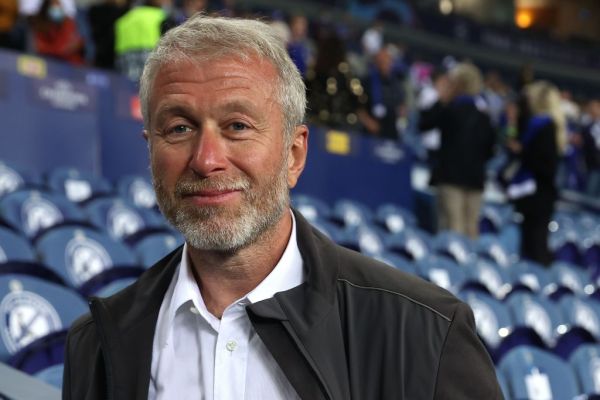Roman Abramovich, the Russian oligarch who owns the highly successful Chelsea Premier League football club, this week saw his club assets seized as part of the U.K. government’s enforcement of Russian sanctions on him and others because of Russia’s unprovoked invasion of Ukraine. So far, however, his ties to technology are not being touched. Truphone — which has disclosed raising over $200 million from two funds that each count Abramovich as their main financial contributor and effectively counts those two funds as its majority owners — said that the sanctions currently do not impact its business, nor its shareholdings, because his link to the company is “indirect.”
“We are aware that sanctions were imposed on 10 March by the UK Government on Roman Abramovich, who has an indirect link to Truphone,” Rachel Chapman, general counsel for Truphone Limited, said in a statement provided to TechCrunch. “However, Mr Abramovich does not have a relevant ‘interest’ for the purpose of UK sanctions legislation in Truphone. This means the Truphone business can continue to operate as usual. It should be emphasized that Truphone is not subject to any sanctions. We are taking legal advice and constantly monitoring the situation.”
The fact that the startup’s two largest shareholders are effectively investment vehicles for Abramovich, yet are an arm’s length away from Abramovich himself, highlights both how tricky it is to trace funding in the world of tech; and specifically the difficulties of untangling “direct” versus “indirect” investments, and thus what is impacted officially and unofficially by sanctions.
Abramovich has made a series of investments in Truphone — a communications technology company that develops eSIM and other technology to enable global voice and data connectivity that bypasses traditional networks — via investment vehicles that are funded by him, covering several years.
In 2013, his firm Minden led a £75 million round, accounting for £70 million of that sum. In 2018, it received another £54 million (£18 million up front and the rest on a “conditional basis” to come through later), this time through two Abramovich firms, Minden and Vollin Holdings. Then, in 2020, it received a further £30 million, again from Vollin and Minden.
According to PitchBook, Vollin owns 72.45% of Truphone, and Minden owns 22.77%, and its database does not list any other active investments for either firm. The company was last valued at $516 million in 2020.
(Sidenote: When we covered those investments, Truphone aimed to keep a lower profile of the details around the investment firms: I recall getting slightly panicked calls from the PRs asking me not to name him in the articles, and then trying to downplay his involvement. Not fishy at all.)
Abramovich had announced last week that Chelsea FC was being put up for sale in light of the situation and that he would make a donation to Ukrainian relief. That process was put on hold by the government yesterday to ensure that Abramovich could not profit from the holding in any way in the meantime. It will continue to operate under a restricted license where no new ticket sales (only season ticket holders that have already paid for tickets can attend), no merchandise sales and no player transfers or sales will be allowed.
It will be worth watching to see what else might happen with Abramovich’s technology interests, and indeed how and if the government decides to pursue what are being described indirect investments.
Abramovich has investment holdings outside of the U.K. too. In addition to Minden and Vollin — which each currently list Truphone as their only active investments on PitchBook — Abramovich is attached to two other VC firms, Norma based out of the British Virgin Islands and Impulse VC. Impulse is based in Moscow and has made some 61 investments in total (some multiple rounds for the same startups, and some have exited). Norma has made 13 investments, including battery startup StoreDot, OpenWeb (formerly Spot.IM) and BrainQ Technologies.
Abramovich was named as one of several Russian investors in Telegram’s ill-fated ICO several years ago. Although I’ve contacted Pavel Durov at Telegram to ask if he is an investor now, and have confirmed he is not.
“No, luckily none of them are our investors 😌,” he told me in a Telegram message.
I’ve heard it estimated by one person that as much as 45% of all venture money in Europe can be traced to Russian sources — a metric that includes not just so-called “oligarch” funds from people made rich off hulks of cut-loose Soviet infrastructure after the fall of the iron curtain or (as some have claimed) funds channeled to the country intended for reconstruction ending up elsewhere; but also the many billions that have been made off the back of those assets in the intervening years, subsequent dividends from other ventures, and also of course money that Russian businesspeople have made over the years by more conventional means.
Several investors, such as Index Ventures and EQT, have released statements regarding to their relationship with Russia and Russian money in recent days. Those statements are careful to note that money is not “directly” from Russia or LPs of Russian origin. That raises the question of what role “indirect” might play. In the meantime they are pulling away from investing in Russian startups, and they are encouraging portfolio companies with Russian operations to wind those down, too.
